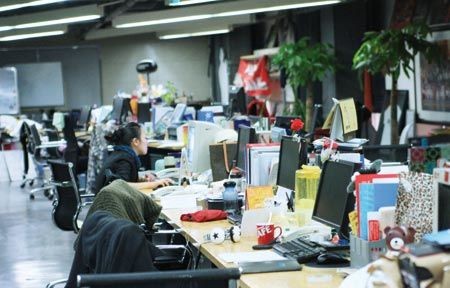Working late in China has become a norm. Foreigners, especially Westerners entering the country to work, usually get the shock of their lives upon noticing that most of their Chinese colleagues refuse to leave the workplace even though the workday is already over and there is nothing else to do.
Newly graduates entering the workforce are usually surprised to see this as well, until they become used to doing it themselves. This should not be encouraged by Chinese bosses.
According to an online survey of 208 office workers designed by the Laodong Daily, 66.83 percent refuse to leave their offices after work hours even though all the tasks for the day have been done.
A majority of them believe that it is not right to be the first to leave the office ahead of others. Almost half of the respondents claimed that leaving first may be used by their bosses against them as this would create a bad impression of their work ethics. They believe that staying late gives the impression that they are working harder than the rest and that they deserve higher salaries.
Interestingly, only roughly 11 percent of the 208 respondents leave on the right time and were not worried about what people would say about it.
According to the Global Times, this behavior is indeed cultural. Chinese people tend to believe that going home first means having little to do or being too unsocial to interact with others.
However, the report claims that bosses should start discouraging the behavior of staying in the office after work hours, especially if the tasks for the day are completed and the employees are just waiting for others to leave.
Time and resources are both being wasted by this behavior, clarifies the report. Moreover, it claims that employees' behavior could be explained by the Chinese company's evaluation system, which is mostly dependent on the subjective opinions of the supervisors as opposed to objective qualifiers such as the quality and quantity of employees' output.



























